- Home
- Joseph Bruchac
Sacajawea Page 3
Sacajawea Read online
Page 3
***
Bad as the Mississippi might have been, the Missouri was worse. Our journey was not an easy one. There were days when we would make no more than twenty miles, what with the currents and the bars and the sawyers, great trees that had washed down in the spring flood and then lodged with their roots in the riverbed, their limbs sawing back and forth in the water. There were always men keeping watch in front, ready to push off whatever was there in the boiling current and about to strike the keelboat; and men keeping watch on the banks, which were often undercut by the current. Great sections of the riverbank, as big as houses, would sometimes crumble in.
Yes, York was often one of those who kept watch. The fact that he was able to swim, something most of our brave crew never learned, was a great benefit to him when time came to leap into the river to work our little ark free again. Other times we would have men rowing in the pirogues with lines tied to the keelboat to tow it, while others were pulling from the shore to drag us along upstream.
Our keelboat was home for weeks at a time. I have only to close my eyes, still, to see it clearly. Fifty-five feet long, eight feet wide at midships, with a thirty-two-foot mast. And a fine sight it was to see our sail filled with wind, like the wings of a white crane. There were eleven benches across for the oarsmen, two to each bench. Many was the time we had tp bend our backs into those oars. Many was the time our hands were raw and blistered as we fought the current or hastened to pull away from the banks before they crumbled down onto us.
There were a few things different about our boat, though. I made my own small modifications before we set out—while Captain Lewis was obtaining the supplies. I put in lockers running along the sides of the boat, devised so that when their lids were raised they formed a shield for the men on board. In the bow of the boat I mounted a fine bronze cannon, set on a swivel so it could turn in any direction. That cannon could fire a single lead ball weighing a pound, or sixteen musket balls, with a single shot. At my request, Captain Lewis obtained four blunderbusses. Heavy shotguns. I mounted them two in front and two behind, on swivels, like my beautiful cannon. They could fire lead shot, musket balls, or even scrap iron. And though we never had to fire them at a human being, having them there was a godsend. You should have seen the way we caught the attention of those bandits, the Teton Sioux, when we fired off all our guns for them. We were nothing less than a floating fort!
With all on board—the men, the tons of supplies, the weapons—that keelboat was no easy vessel to drag up the Missouri. And a long weary drag it was, indeed.
Was that the worst part, the hardest part of our journey? Far from it, my boy. Nor was the worst part the danger from hostile savages, nor the biting cold that froze our fingers and toes, nor the starvation, nor the endless miles of walking when our clothes were no more than rags. Nor was it those times when we were so sick we could barely stand and the world seemed to swim about our heads as if we were underwater. Would you like to know what was truly the most difficult hardship for Captain Lewis and me? It was the waiting times. The times when every muscle in us ached to be on the move but we knew we were not yet ready, the times when we had to stay even longer. Those times were the ones that most drove us mad. We were young and eager, but for every one of those long, backbreaking days of our travel there were at least as many days of waiting and readying ourselves. And we had just finished such a biding time in our first winter camp. From the Moon of Freezing all the way through the Moon of First Flowers we were here near St. Louis. Our camp was just opposite the mouth of the Missouri where it enters the Mississippi. Camp Wood, we called it.
Captain Lewis had spent that endless winter haggling with the merchants of St. Louis for supplies—and dealing with their petty quarrels and complaints, for each one of them wanted to reap all the rewards of our sizable business. He did that and studied every map he could find of the Missouri upstream and talked with whoever he could find who'd actually been up the river, people such as McKay. That took all his time.
And what was it that I did? I was in charge of building the camp and keeping discipline among the men. And that was no small task, for a leader of soldiers is responsible for the doings and the health of every man beneath him. Some of the men acted so badly, stirring up trouble, that we feared we could not take them with us the whole way. Such men as Privates Reed and Newman were the worst. Others, like Private John Colter, straightened themselves out and made fine, reliable companions. At first Colter was so bored with the waiting he wanted to go back home. He was the sort of rough, strong young man who would do well in the wilderness. He only needed a teacher. Yes, Pomp, even grown men still need teachers.
So I asked the best of our men to take him under his wing—a man like you, part Indian and part white. He was the best frontiersman I have ever known, the son of a French father and a Shawnee mother. His name was George Drouillard. No, you shall never meet him. Like others of our company, my dear friend Drouillard no longer walks among the living. The Blackfeet took their vengeance on him one winter ago at the Three Forks.
***
Now I will leave you to your reading. Mark my word, lad, learn to read and the world will open wide to you in every direction.
5. SACAJAWEA
Stories up the River
When the world was new, Wolf made it so that it was easy to travel the rivers. Wolf made it so the rivers flowed both ways. On one side of the river, the water flowed upstream. On the other side, it flowed downstream. To go one way or the other, you had only to paddle over to whichever side you wished and the river would carry you.
Then Coyote came along. "This is too easy for everyone," he said. "This is not interesting."
So Coyote made things more interesting. He made all the rivers flow in just one direction. He threw in rocks so that the rivers would be rough in some places, and made waterfalls so the rivers would be dangerous in others.
Why did he do that? Because he was Coyote.
Still, things come upstream: fish, water creatures, and people in boats.
And another thing that cannot be seen but is even stronger than fish and water creatures and the boats of people always comes up the river, too. What is that? It is stories.
IF YOU LOOK AT THE RIVER, Firstborn Son, you might think that everything in it always goes downstream. You see how the river's strength pushes down the limbs of trees and the small islands of grass that are torn from the banks. You see how its waters move so swiftly. But just as some things go downriver with the current, so do other things push up against it. You see how people take their boats upstream—how they paddle and push them or how they spread sails like the big white wings of birds, and then the wind helps them travel upstream. It is not easy for people to go upstream. They must work hard.
***
That fourth summer since I had been taken captive, as the captains made their way up the Great Muddy River, the stories about them traveled ahead of them. Those stories even reached the place where we lived among the Mandans and the Minnetarees. What were those stories? Curious stories. Stories of a huge war boat that had guns on it so big that when they were fired it was like the crack of thunder. Stories of soldiers who came and told the nations along the river that they were no longer the children of the Spanish king. Now the Great White Father of the new nation to the east was their father. Now there must be a new way among their people, the white warrior chiefs said. Now it was wrong for the Indian nations to fight one another. Think of that, warriors telling other warriors not to fight. They actually ordered the people to stop fighting and said if they did not stop, they would punish them.
People laughed when they heard that. It was amusing. If the young men of one tribe could not go and raid another tribe, then how would they be able to earn names of honor? How could any young man of one tribe become a leader if he could not prove himself in battle? It was curious that a few handfuls of white men thought they could punish whole villages of Indians. These white men coming up the river were brave, but they we
re also foolish.
Other strange stories were told about them, too. It was said that their boats were filled with trade goods, with guns and powder and useful things. Everyone wanted to trade for these things, especially for the weapons. People understood trading. Even those tribes that fought with each other one season would meet together in peace to trade the next. For many winters other white men, British and Spanish and French, had gone up and down the rivers trading. But these strangers said they did not want to trade. They would not sell their guns or powder to anyone. They said they had brought all the other things to give away as gifts. But even though they gave gifts, the gifts they gave were very small. It was as if they were crazy.
When those stories came to us, we were not sure that those crazy white soldiers would reach the Mandans and Minnetarees. First they would have to pass by the Brule, the people the whites call the Tetons. If the white men would not trade with them, if they just gave the Brule a handful of little presents, the Brule would be insulted. Then those stories of the white men would stop coming up the river. They would float back down with the same current that would carry the burned remains of their war boat and the dead bodies of those brave but foolish white men, and their story would be at an end.
But the ways of stories are mysterious, Firstborn Son. And I will end this part of our story for now.
6. WILLIAM CLARK
Looking for Indians
31st of August, 1804—
After Dinner we gave Mr. Peter Dorion, a Commission to act with a flag and some Cloathes & Provisions & instructions to bring about a peace with the Seioux, Mahars, Panies, Poncaries, Ottoes & Missouries, and to employ any trader to take Some of the Chiefs of each or as many of those nations as he Could Perticularly the Seuouex. I took a Vocabulary of the Suoux Language, and the Number, War. &c. &c. This Nation is Divided into 20 Tribes, possessing Seperate interests. Collectively they are numerous say from 2 to 3000 men, their interests are so unconnected that Some bands are at war with Nations with which other bands are on the most friendly terms. This Great Nation who the French has given the Nickname of Suouex, Call themselves Dar co tar.
JOURNAL OF WILLIAM CLARK
CALUMET BLUFF, NEBRASKA
AS WE MADE OUR WAY up the Missouri, we began to meet other boats, cayeaux coming down loaded with furs. The fur trade, Pomp, can make a brave man rich or cost him his life. For there are such Indians along the river as the Teton Sioux, who have always tried to control that river trade. They may kill the man who seeks to slip past them to trap his own peltries. Or, like the Blackfeet in those northern mountains, they guard their own beaver trapping grounds with great jealousy. Many still took those risks and had been taking them for many years, going far up the Missouri.
On June 8 we met three men on a cayeau from the River of the Sioux, above the Mahar nation. Those men had been out hunting for twelve months and had about nine hundred dollars in pelts and furs. In but one year they had earned that great a sum. But think of this, too: In New York those furs would sell for ten times that much, and in China for ten times that. There are great fortunes to be made in the fur trade.
Valuable as those furs were, we were very pleased on June 12, when at Grand River we saw two more pirogues, one of them loaded with voyager's grease made from the tallow of the buffalo. Captain Lewis bought three hundred pounds of that grease, to our great and lasting relief. Immediately we began smearing that grease onto every part of our bodies exposed to the air. It gained us some small relief from the mosquitoes and gnats that swarmed about us so thickly that they almost blinded us and we breathed them in through mouth and nose. We would stand each night as close to the fires as we could, choking on the smoke, just to get away from those tiny creatures so hungry for our blood and flesh.
That same day we also met Pierre Dorion, a French trader with a Yankton Sioux wife. He was a fine old man and spoke his wife's language well. He had been friends with my brother, the "General," in Illinois during the great War of Independence. Realizing that an interpreter would be of great use to us, we asked him to accompany us, and he agreed.
Strong and healthy as we had begun, we were now suffering from boils and ulcers and dysentery. That came partly from the way our men would drink the surface water of the river, filled as it was with scum—even though we urged them to dip their cups deep, to the cleaner water below.
On July 21, more than two months into our great journey, we reached the mouth of the River Platte. We had come 640 miles and had not yet seen an Indian. The plains were filled with game, but not a single Indian, though we had seen fires and deserted campsites. One of our jobs was to carry the word to the many Indian nations that it was now our president, no longer the king of Spain, who was their Great Father. We had been given the orders to treat with the Indians fairly and to avoid conflict with them. We were to open the way for trade, inform them of our sovereignty, and establish peace among the many warring tribes. We did not know then, as we know now, that only the first of those three objectives would be quickly met.
Our flatboat was loaded with goods of all kinds to provide as gifts. We had beads, axes, mirrors, ivory combs, moccasin awls, tomahawks, brass kettles and brass buttons, calico cloth, scissors, vermilion face paint, tobacco, and whiskey, as well as medals and flags for the headmen. It was all divvied into lots for each of the tribes. We had prepared twenty-one bags for the tribes we had hoped to meet before finally reaching the Mandan villages, where we planned to spend the winter. Then there were an additional five great heavy bales of goods for the tribes between the Mandans and the Pacific. But we had met none thus far, disappointingly.
We did not know yet that it was the season when the tribes desert the river to hunt buffalo. But now we were entering the land of the Sioux and we would, before long, see many Indians. And when we came to the Teton Sioux, we would see far more than we wished.
On we pushed, up the river. On August 1 of 1804 I celebrated my thirty-fourth birthday with a feast as fine as any king of Europe ever enjoyed. Here it is as I wrote it in my journal: "This being my birth day I ordered a Saddle of fat Vennison, an Elk fleece & a Bevertail to be cooked and a Desert of Cheries, Plumbs, Raspberries Currents and grapes of a Supr. quallity."
***
Those plains were like the Garden of Eden, with so much game that we had to push the animals aside at times as we walked. One day there might be thousands of squirrels swimming across the stream and Captain Lewis's great joyous dog, Seaman, would dive in, killing and retrieving one after another for our pot. Another day there would be herds of buffalo or elk. Or we might fish, as on August 18 when Captain Lewis and twelve men took more than four hundred pounds of fish from a single Otoe pond while waiting for an Indian delegation to arrive. Hard it was to imagine that a time would come when we would freeze in the mountains, boil our shoelaces for soup, or be glad to have a dinner of scrawny dog. No, not Seaman, lad. He made it all the way to the great ocean and back as safe and sound as any of our company—all save one. All save one, God rest his loyal soul.
It was August 2 when we finally met our first Indians on the Missouri. A few Otoes and Missouri, accompanied by a Monsieur Fairfong, a French trader who lived with them, hailed us from the riverbank. Indians at last! It was hard to contain our excitement. We told them we were most glad to see them as we gave them carrot twists of tobacco, pork and meal and flour. In return they gave us watermelons. The next morning we met with them and their chiefs at Council Bluff.
Our men, led by Sergeants Ordway and Floyd, had been well drilled for such a meeting. To impress them we marched in close order in parade. Captain Lewis and I stood and watched in full dress uniform as our men wheeled, shouldered arms, fired a volley. York stood at my side, his head high in the air, proud to be part of such an impressive company. I must confess that the color of his skin seemed as much a wonder to some of the Indians as was our display of military might. I would later learn it was a custom among many of the Indian tribes to paint their whole bodies black wit
h paint when going to battle. Thus they thought he must be one of our bravest warriors. It was a fine day for America.
Captain Lewis spoke then, translated by Monsieur Fairfong. The Otoes listened, impressed, I thought. However, what they spoke in reply was not great oratory.
"Very sensible," Sergeant Ordway said.
It seemed that they were not satisfied with the gifts we gave them. Each time one of their chiefs spoke to us he asked for more. One of them even came before us naked, begging for gifts to cover his bare body and whiskey to soothe his thirst. We gave him a small medal and a certificate.
I am sad to say, Pomp, that it was while among the Otoes that one of our men, Private Moses Reed, attempted to desert. He said he had left a knife behind and went back to retrieve it. When he did not return after three days, we sent Drouillard after him. Ten days later, on August 18, Captain Lewis's thirtieth birthday, Drouillard returned with Reed as a captive.
When the Otoes heard we planned to whip Reed they actually pleaded that we not do so. It was not their way to whip those who did wrong. As we would later hear among the Arikaras, it was not the Indian custom to strike even their children. Their chief wept and pleaded with us not to do this thing. His belief was that if a man truly did great wrong to his people, then it was better to kill him or exile him than to take away his dignity by a public beating. But we convinced the Otoes of the Tightness of our sentence, and it was carried out with the Indians watching. Then we celebrated Meri's birthday. Pierre Cruzatte brought out his fiddle and we danced until late in the night around the fire. Only Sergeant Floyd begged that he was tired and went to bed early that night.
The next morning, Sergeant Floyd's condition was worse. He was taken violently bad. Nothing would stay in his stomach. Captain Lewis, who served valiantly as the doctor for our expedition, had nothing among his medicines that could ease the pain.

 Peacemaker
Peacemaker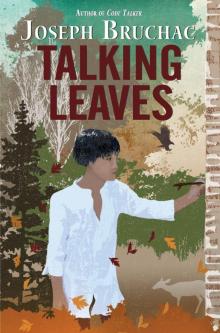 Talking Leaves
Talking Leaves Found
Found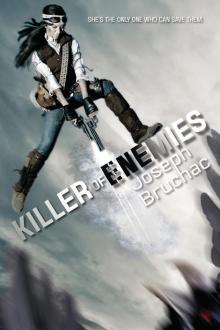 Killer of Enemies
Killer of Enemies Wabi
Wabi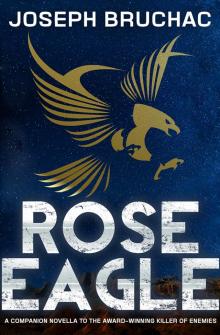 Rose Eagle
Rose Eagle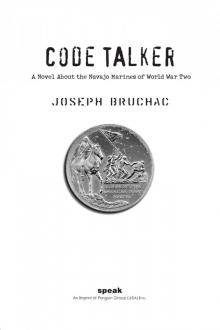 Code Talker
Code Talker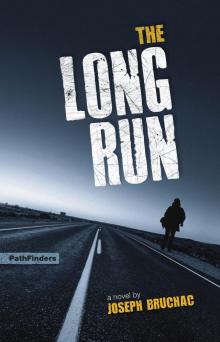 The Long Run
The Long Run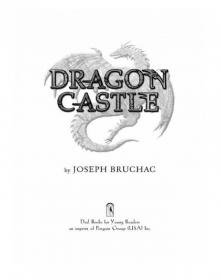 Dragon Castle
Dragon Castle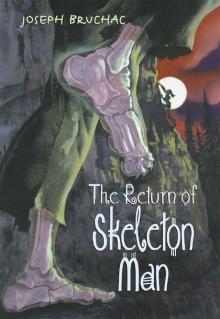 The Return of Skeleton Man
The Return of Skeleton Man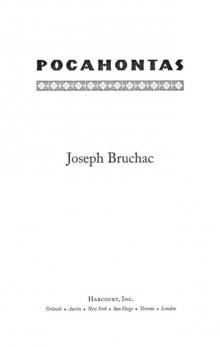 Pocahontas
Pocahontas Whisper in the Dark
Whisper in the Dark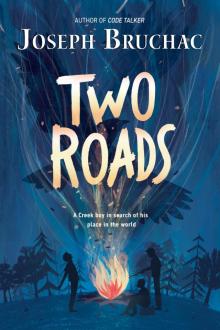 Two Roads
Two Roads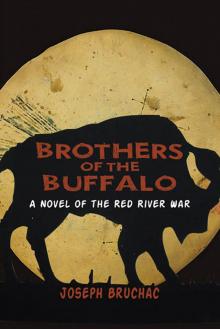 Brothers of the Buffalo
Brothers of the Buffalo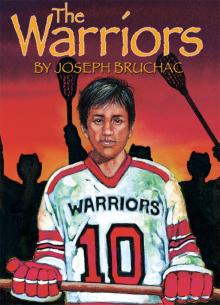 The Warriors
The Warriors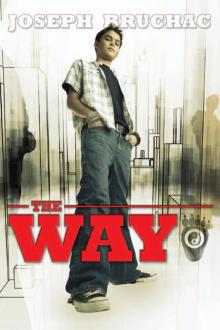 The Way
The Way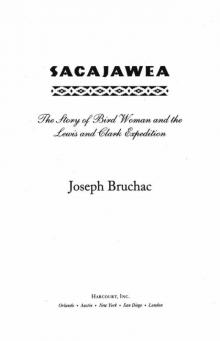 Sacajawea
Sacajawea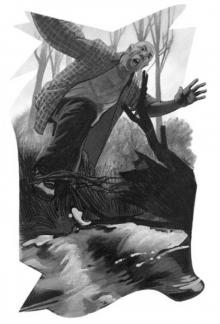 Night Wings
Night Wings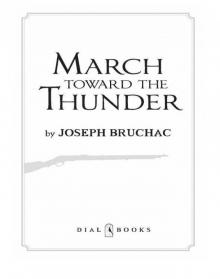 March Toward the Thunder
March Toward the Thunder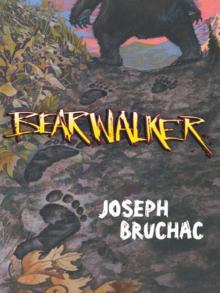 Bearwalker
Bearwalker Skeleton Man
Skeleton Man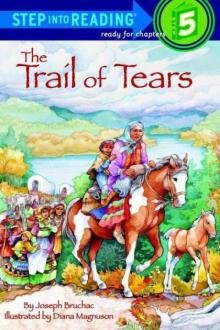 The Trail of Tears
The Trail of Tears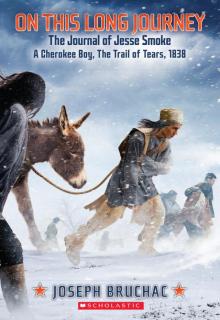 On This Long Journey
On This Long Journey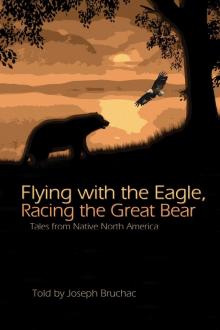 Flying with the Eagle, Racing the Great Bear
Flying with the Eagle, Racing the Great Bear